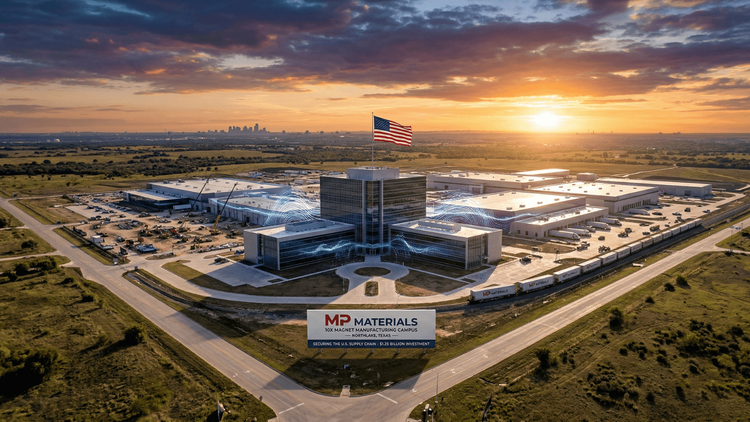Private Equity Firms Are Betting Big on Europe's Military Surge
Private equity storms into Europe's defense sector, flipping the script on decades of taboo investments.

Once scorned and avoided, Europe's defense sector is now the hottest ticket in private equity. Private equity giants are no longer shying away from defense assets; instead, they are racing toward them with checkbooks wide open. As geopolitical tensions escalate and European nations scramble to rearm and secure their borders, private investors are pivoting sharply, recognizing defense as not only necessary but enormously profitable.
Historically, the defense sector was a pariah for private capital. Ethical concerns, stringent regulations, and ESG policies kept investors at bay. Capital-intensive and politically sensitive, defense was seen as toxic — an unpredictable industry fraught with risks far outweighing potential returns. But the world has changed. War in Ukraine, uncertainty around American support for NATO, and rising threats from global adversaries have forced Europe to take its security into its own hands. As a result, private equity firms are now diving into defense with an enthusiasm once reserved for tech unicorns and green energy startups.
Firms like Tikehau Capital and CVC Capital Partners are leading the charge, setting up dedicated teams and raising specialized funds to hunt defense opportunities across Europe. Tikehau's €800 million aerospace and defense fund, buoyed by backers such as Airbus, Safran, and Thales, is a prime example of how mainstream defense investment has become. Meanwhile, Advent International is positioning itself to flip defense assets, capitalizing on the soaring valuations and unprecedented buyer interest sweeping across the sector.
Bloomberg’s data paints a striking picture: private equity spending on defense has historically been modest, breaching $1 billion only five times in two decades. Yet by April 2025, investment has already hit $790 million, with major deals still looming. Firms like Bain Capital and KPS Capital are circling heavyweight targets such as Iveco Group’s defense unit, expected to fetch up to €1.5 billion. Clearly, private equity sees defense not just as a safe haven, but as a goldmine.
Europe’s defense renaissance is not just about capital—it’s about survival. Political leaders like UK Prime Minister Keir Starmer and Germany’s Friedrich Merz are pledging massive defense budget increases. In parallel, the European Commission has unveiled an €800 billion "ReArm Europe" plan, actively seeking private capital to turbocharge military modernization efforts. Private equity isn’t just opportunistic; it’s now a strategic partner in reshaping Europe's defense infrastructure.
This shift in perception is nothing short of a revolution. Figures like Klaus Hommels, chair of the NATO Innovation Fund, illustrate how even venture capitalists are getting involved, targeting dual-use technologies like AI and quantum computing. High-net-worth individuals, once skeptical, are now investing in defense for patriotic as well as financial reasons. Defense investments have transformed from taboo to trendy, from a risky gamble to a badge of honor among Europe’s elite investors.
Veritas Capital, Weinberg Capital, and KKR & Co. are all scaling up their exposure, raising billions to capture a slice of the surging defense market. Meanwhile, strategic buyers and private equity firms are preparing for a flurry of deals. CVC has even built an internal aviation, defense, and space team, proof that defense investment is no longer a side hustle—it’s a core strategy.
The barriers that once restricted defense investments are rapidly crumbling. Previously, ESG mandates and EU regulations tied investors’ hands, but the geopolitical landscape has forced regulators and asset managers to rethink. European Commission President Ursula von der Leyen has vowed to unlock capital, emphasizing that when freedom and security are under siege, no investment category should be off-limits. Sustainable investing frameworks are being reinterpreted, and restrictions that once deterred defense allocations are evaporating under political and public pressure.
Private equity’s appetite for defense is already reshaping dealmaking across Europe. Firms that once struggled to offload defense assets are now witnessing bidding wars. Advent’s sale of Cobham Satcom and Searchlight Capital’s planned divestment of Survitec’s aerospace business signal a red-hot sellers' market. Companies like ScioTeq and Wescom are likely next on the auction block, and buyers are lining up.
Notable transactions in 2025 show the momentum is real. AE Industrial Partners’ sale of Edge Autonomy and Greenbriar Equity’s offload of Arotech Corp. demonstrate that defense-related businesses are now among the few assets commanding premium prices even in a tough exit environment. However, the rapid rise in defense interest is not without its challenges. Governments, wary of losing control of strategic industries, are tightening scrutiny. Prime Minister Starmer’s insistence on keeping companies like Chemring Group British highlights how national security concerns could complicate some private equity moves.
Moreover, long-term risks loom. A potential shift in U.S. foreign policy, particularly if America’s stance toward NATO softens, could dampen European defense spending in the future. Analysts like Valeriya Vitkova of Bayes Business School warn that investments based on today’s political climate may become less attractive if global priorities shift.
Still, for now, private equity's romance with defense is in full bloom. Investors are betting that rising defense budgets, political will, and public support will create a lasting boom. With Europe facing a historic military buildup, private capital is positioning itself at the heart of the continent’s future security architecture. Defense is no longer the forbidden fruit of investing—it’s the main course.
Conclusion
The transformation of private equity’s relationship with the defense sector is one of the most striking investment shifts of the decade. What was once toxic is now vital. Europe’s security needs, combined with shifting political winds and a reassessment of ESG boundaries, have opened the floodgates. Private equity firms are not just investing; they are becoming architects of a new European defense era. If geopolitical tensions persist—and all signs suggest they will—then defense investments are not merely a passing fad. They are the future.






